Faun is a German band formed in Munich in 1998, which has already been labeled as a Pagan folk (as they often refer to themselves), neofolk, darkwave, Celtic folk, medieval music or, more recently, folk rock musical group.
The fact is that the Bavarian sextet presents a range of very original and diverse compositions, ranging from melancholic ballads to more festive songs. Most of these characteristics are the result of the use of ancient musical instruments such as the Celtic harp, the nyckelharpa, the hurdy-gurdy, the cittern, bagpipe and many others. In addition, the songs are sung in several languages, including the band members’ native German, Latin, Hungarian and ancient Scandinavian languages.
The name “Faun” refers to the deity of Roman mythology, Faunus, the Pan of the Greeks, which refers to the band members’ reverence for nature and its creatures. The band started with Oliver “S. Tyr” Pade, Elisabeth Pawelke, Fiona Rüggeberg and Birgit Muggenthaler. Two years later, Birgit left the group to play in the Folk Rock band Schandmaul. In the same period, Rüdiger Maul joined the band, taking over the percussion.
In 2002, they released their first album, Zaubersprüche, with Niel Mitra as session musician, who was responsible for the electronic instruments. Subsequently, he became a definitive member of the band, remaining until today. Stephan Groth joined in 2012 and Laura Fella in 2017.
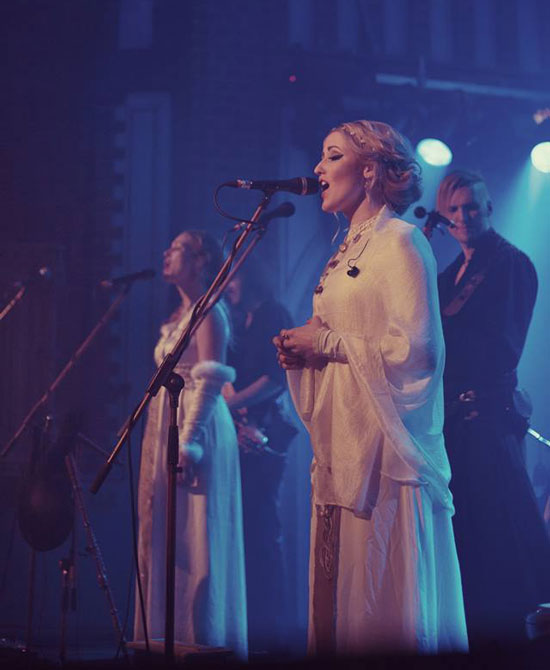
Faun with Laura Fella (2017).
See also: Fiona Rüggeberg leaves Faun after 20 years
Inspirations for their lyrics often come from classic texts such as Carmina Burana (Satyros, Renaissance), Cantigas de Santa Maria (Da que Deus, Renaissance), Jenaer Liederhandschrift by Vitslav III, Prince of Rügen (Loibere Risen, Renaissance), Egil Skallagrimsson’s Saga (Licht), Prose Edda by Snorri Sturluson (Sigurdlied, Buch der Balladen), Heinrich von Morungen (Von den Elben, Licht), the ballad King Henry, as well as romantic and modern authors like John Keats (Der Wilde Wasermann, Buch der Balladen), Baron Munchausen (2 Falken, Totem, Jahrtausendalt, Buch der Balladen), José Melchor Gomis (Tinta, Totem), Joseph Freiherr von Eichendorff (Der stille Grund, Totem), Felicitas Kukuck (Tanz über die Brücke, Buch der Balladen), among others.
Rescuing the roots
Pade, the band leader, was the first to enter the revivalist cultural world of the medieval period. With a master’s degree in medieval literature, while composing songs in private (because “he had the desire to tell stories in the form of music”), he took part in medieval fairs practicing juggling or as an actor in plays. He has also performed as a session musician for Mediaeval Baebes, Eluveitie, Celtic Woman, Corvus Corax, Schandmaul, among many others. Over the years, he realized how people have recovered the desire to be closer to nature, sitting with a group around a fire, instead of going to a nightclub, for example. That is, “returning to the roots”.
For the members of the band, it is essential that people rescue their own roots, their history, folklore, fairy tales, ancient sagas. Faun does all this, masterfully, in their compositions, awakening those same desires in other individuals. There is no doubt that folk music has been very successful in inspiring this feeling in people around the world.
Faun’s seventh studio album, Von den Elben, released in 2013, was the band’s first release to reach the top 10 of the albums released that year in Germany, Austria and Switzerland. It was nominated for the now extinct ECHO award, then the most important music award in Germany in the categories National Rock/Pop Group and National Revelation of the Year. They have also won gold (Luna) and platinum (Von den Elben) records.
See also: Auļi releases ‘Voices of the Ancestors’ (Senču balsis)
The band’s most recent album is called Midgard. Based on Norse mythology, it became one of the most popular albums released that year in Germany and featured Einar Selvik, from the Norwegian band Wardruna in the song Odin. In 2018, the group released a collection containing their biggest hits, including live versions of some of the songs, titled XV – Best Of.
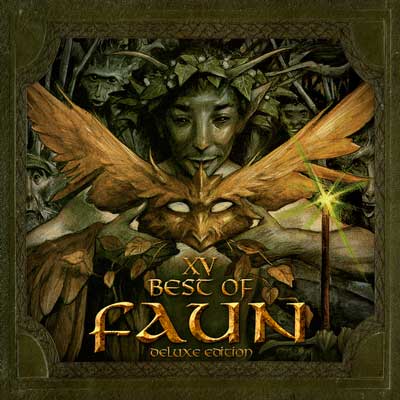
XV – Best Of (2018) | Universal Music Group
Members
- Fiona Rüggeberg (vocals, flutes, bagpipes, dombra, rebab, pomme)
- Oliver “s. Tyr” Pade (vocals, nyckelharpa, harp)
- Stephan Groth (vocals, hurdy-gurdy, flutes, cittern)
- Rüdiger Maul (percussion, drums, timbau)
- Niel Mitra (sampler, synthetizer)
- Laura Fella (vocals, framedrum, mandola)
Discography
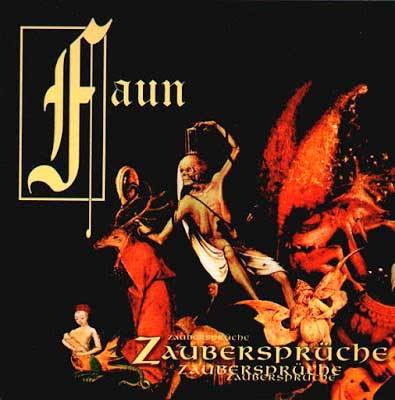
Zaubersprüche (2002) | Curzweyhl
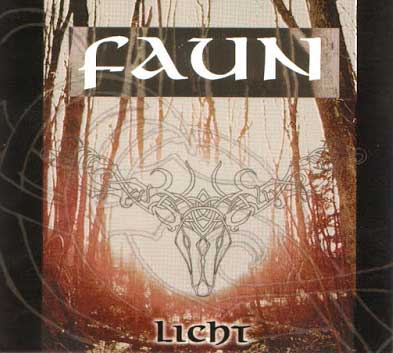
Licht (2003) | Curzweyhl
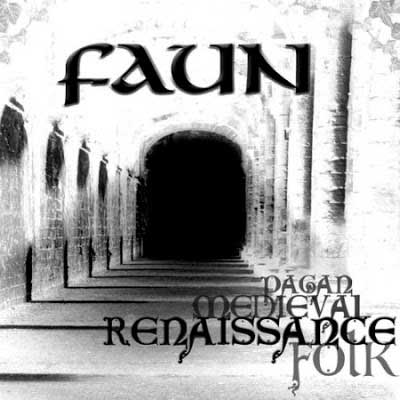
Renaissance (2005) | Curzweyhl
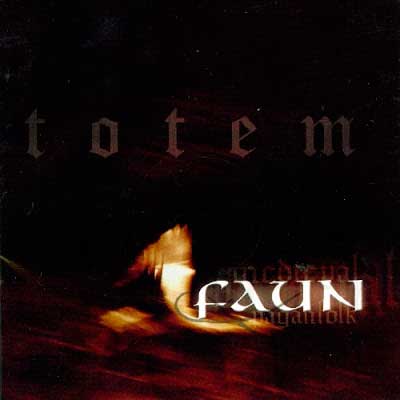
Totem (2006) | Banshee Records
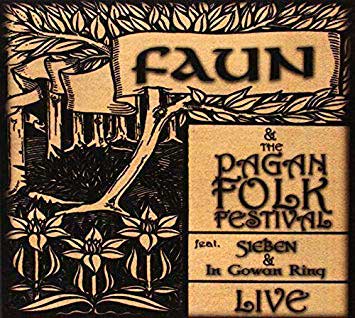
FAUN & the pagan folk festival – Live (Ao Vivo – 2008) | Heart of Berlin
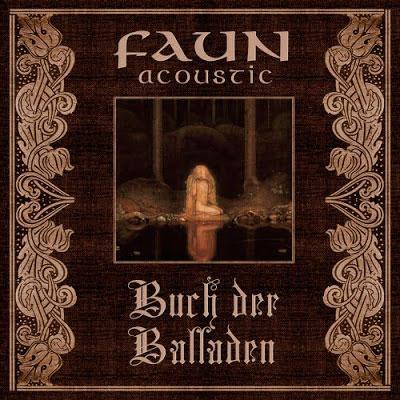
Buch der Balladen – Acoustic (2009) | Banshee Records
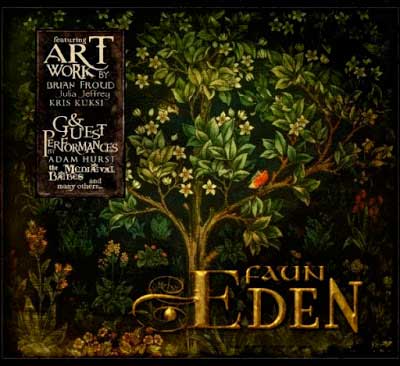
Eden (2011) | Banshee Records
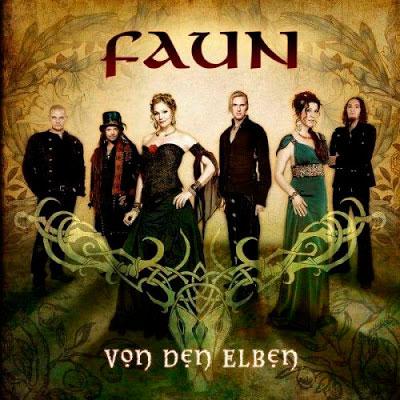
Von den Elben (2013) | Universal Music Group
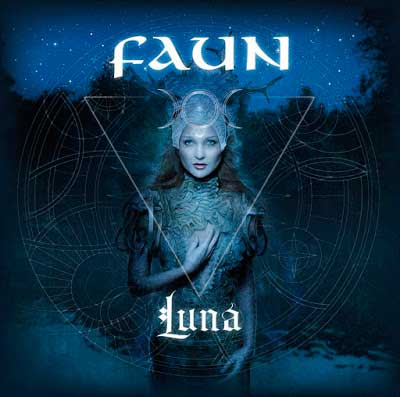
Luna (2014) | Universal Music Group
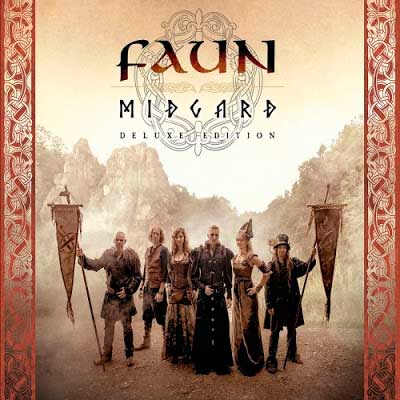
Midgard (2016) | Universal Music Group
Links
Website | Facebook | Twitter
Instagram | YouTube | Spotify
Playlists
Faun Paganfolk
Faun XV Best Of – Niel’s Choice


